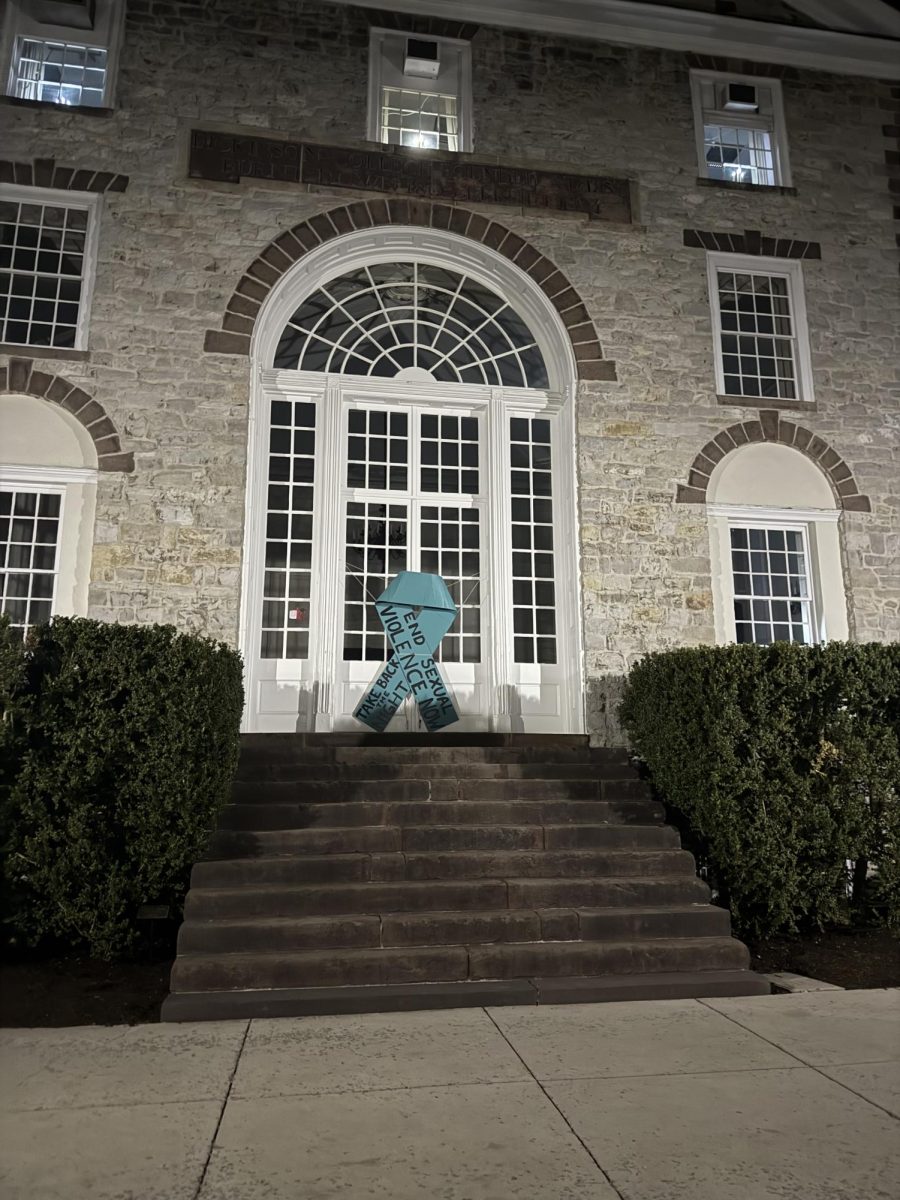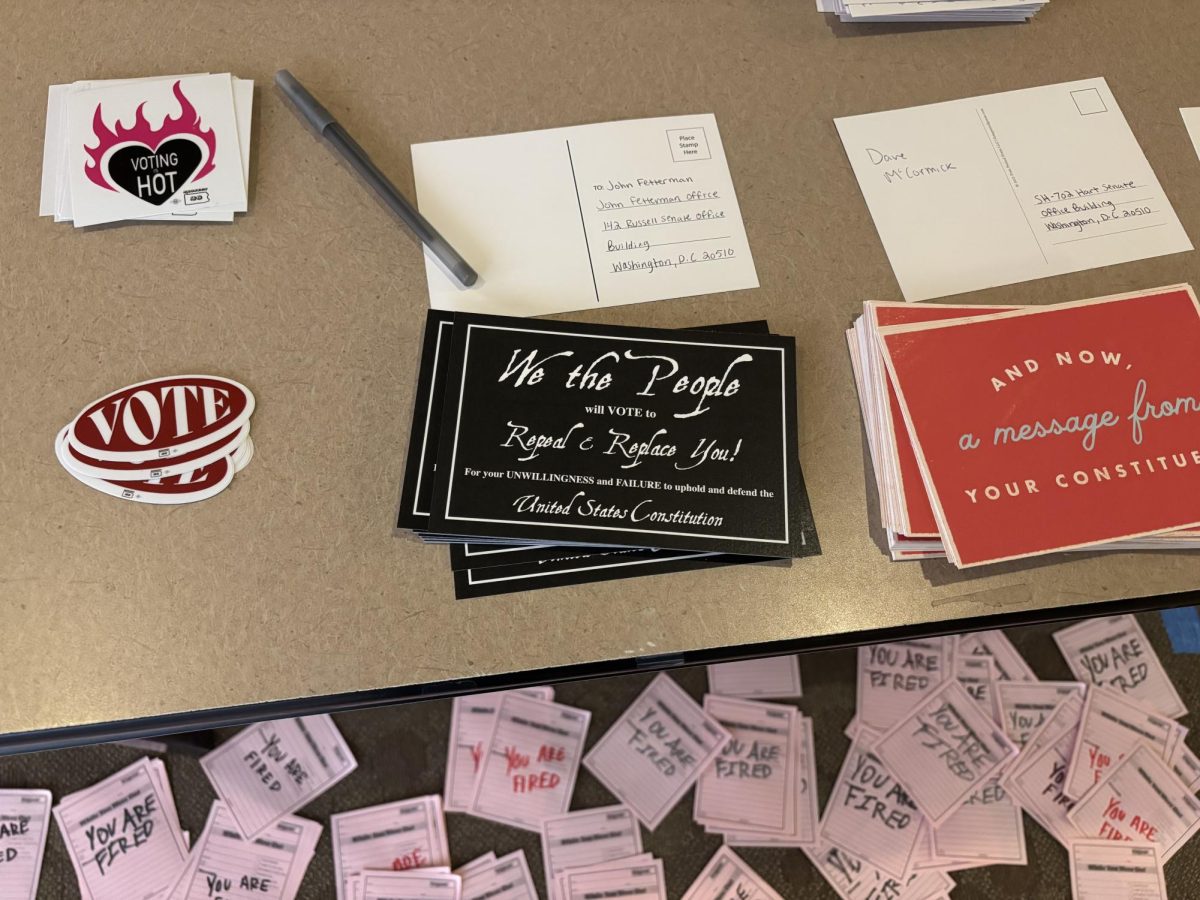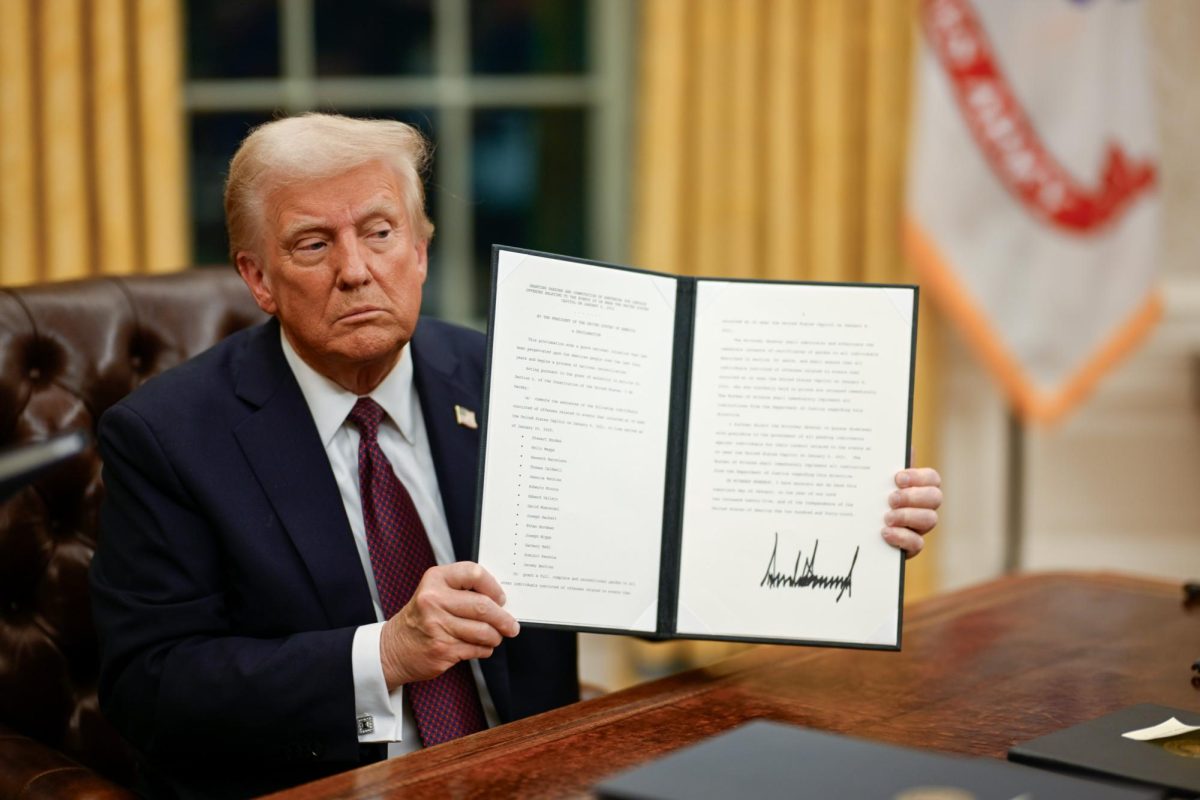In a reflection of the nation-wide debate over the use of fossil fuels and sustainable forms of energy, a group of Dickinson students are pressuring the college to trade in its stocks in fossil fuel companies and to invest in environmentally sustainable and socially conscious businesses.
On Thursday, April 4, Reinvest Dickinson, the student group aimed at securing Dickinson’s divestment from fossil fuel companies, hosted “Responsible Investing for a Sustainable Future,” an information and question and answer panel session. The event was hosted by Reinvest Dickinson in partnership with Students for Social Action, EarthNow, the Center for Sustainable Education (CSE) and the Interdisciplinary Dialogue on Climate Change (IDCC).
Thursday’s event brought together perspectives from students, faculty and administrators to create a primer for those who wanted to learn more about the prospects for divestment. Panelists for the event were William Kochtitzky ’16, the student representative from Reinvest Dickinson; Neil Leary, director of CSE; Stephen Hietsch, associate vice-president of financial operations and auxiliary services; Sebastian Berger, assistant professor of economics; and Alice Handy, founder and CEO of Investure, the financial advisory group that manages Dickinson’s endowment.
The first panelist to speak was Hietsch, who explained Dickinson’s approach to managing its endowment. Dickinson’s endowment consists of donated funds and investment returns. According to Hietsch, Dickinson follows the “triple bottom line” model of investment. This perspective gives equal consideration to the social, environmental and financial ramifications of a business decision. Hietsch explained that focusing too intensely on any one area could harm the other areas. According to the Dickinson website, Dickinson committed to following the triple bottom line model after President William G. Durden ’71 called for socially responsible investing in his 2007 convocation speech.
“When we talk about the endowment, we seek the maximum possible returns so we can do the things we want to do as an institution,” said Hietsch. “A large percent of our endowment goes to support scholarships that make it possible to give [$40 million a year in] financial aid. Sustainability is very big on this campus, and everything that we do, we try to take a sustainable approach, including our investments and endowment.”
Since 2006, Dickinson has partnered with Investure LLC to manage the school’s endowment. Handy explained that divesting from fossil fuel companies would be difficult given her company’s methods of investing in comingled funds. Investure manages investment portfolios for fourteen clients, and each client in the consortium must agree to divest in order for Dickinson to divest under Investure’s leadership.
“With regard to divestment, just like any major issue that our clients encounter, we prize that we have and will continue to listen to your thoughts and concerns…we will work with Dickinson’s board and administrators to think of creative solutions as we work to develop a plan that works for the entire consortium,” said Handy.
However, Hietsch questioned whether divestment would be worth potential financial losses to the endowment due to either leaving the Investure consortium or investing in less lucrative industries.
“Even if we did [divest] it would not have any practical impact on the fossil fuel industry itself,” Hietsch said. “I would like to focus on what we can do here on campus rather than try to tackle environmental problems by divesting our endowment.”
Leary presented a similar view, arguing that Dickinson’s investments, including those in fossil fuel companies, are what allow the school to invest in sustainable technologies and education.
However, some students and faculty believe that continuing to invest in fossil fuel companies contradicts Dickinson’s sustainable ethos. Kochtitzky advocated for divestment as a way of encouraging other institutions to follow suit.
“[Dickinson is] a national leader in sustainability…If we are going to address climate change, we need for these institutions of higher education…to divest from fossil fuels. [Divestment] would be a symbolic act that not only would call national attention to climate change, but also show students how Dickinson aligns its practices with its values,” he said.
Berger also noted that divestment would be a logical choice.
“As an environmental ecologist, I [believe] that we are dangerously dependent on a rapidly declining resource,” he said. “The hidden economic, ecological and moral costs contradict our professed humanitarian ideals and outweigh the benefits.”
The administration will not make a decision any time soon. However, students will continue to initiate conversations on the issue in months to come.






